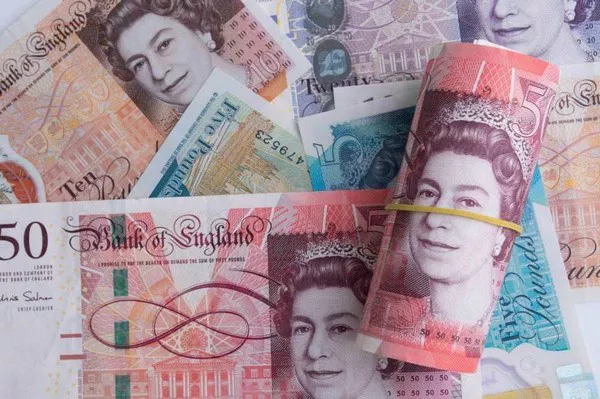When it comes to currency strength, many factors come into play, such as the country’s economic stability, political situation, and international trade relations. The pound sterling, also known as the British pound, has long been considered one of the world’s strongest currencies, thanks to its status as a reserve currency and the United Kingdom’s economic power. However, like any other currency, the pound’s value fluctuates depending on various global and domestic factors. In this article, we will explore some of the currencies that have been performing well against the pound in recent times.
The US Dollar
The US dollar, also known as the greenback, is the most widely traded currency in the world, and it happens to be one of the strongest currencies compared to the pound. The dollar’s dominance stems from the US’ position as the world’s largest economy, with a GDP of over $20 trillion. Moreover, the dollar’s status as the primary reserve currency means that central banks worldwide hold significant quantities of dollars in their reserves. This demand for dollars helps to keep its value high relative to other currencies, including the pound.
Euro
Another currency that has been performing well compared to the pound is the euro. The European Union’s (EU) single currency has become increasingly popular since its introduction in 1999. Currently, the euro is used by over 19 EU member states, making it the second-largest reserve currency globally after the US dollar. The euro’s strength against the pound can be attributed to several factors, including the EU’s economic power and its large trading bloc, which provides stability to the euro.
Swiss Franc
The Swiss franc is another currency that has historically been stronger than the pound. Switzerland is known for its political neutrality, financial stability, and low inflation rate, which has made the franc an attractive investment option for many investors worldwide. Moreover, the Swiss National Bank (SNB) has a reputation for intervening in the market to keep the franc’s value stable. This has helped to maintain the franc’s strength against the pound over time.
Japanese Yen
The Japanese yen is another currency that has been performing well against the pound. Japan is known for its robust economy, technological advancements, and low unemployment rate, which has made the yen an attractive investment option for many investors worldwide. Moreover, the Bank of Japan (BOJ) has been implementing monetary policies to keep the yen’s value stable, which has contributed to its strength against the pound.
Chinese Yuan
The Chinese yuan, also known as the renminbi, is another currency that is stronger than the pound. China has become one of the world’s most potent economic powers, with a GDP of over $16 trillion, making it the second-largest economy globally. The yuan’s strength against the pound can be attributed to China’s increasing influence in international trade, its strong manufacturing sector, and its significant holdings of US debt, which strengthens demand for the yuan.
Factors Affecting Currency Strength
Several factors can affect a currency’s strength against others, including:
1.Economic Performance: A country’s economic performance can significantly affect its currency’s strength. If a country’s economy is thriving, its currency is likely to appreciate. On the other hand, if an economy is struggling, its currency may depreciate.
2.Political Stability: Political instability can also have adverse effects on a country’s currency. If a country is experiencing political upheavals or unrest, investors are likely to withdraw their investments, leading to a depreciation of the country’s currency.
3.Interest Rates: Interest rates play a crucial role in determining a currency’s strength. Higher interest rates attract foreign investors, which leads to an appreciation of the currency.
4.Inflation: Inflation can also affect a currency’s strength. High inflation rates can lead to a depreciation of a currency, while low inflation rates can cause an appreciation of a currency.
Conclusion
In conclusion, many currencies are stronger than the pound, and their strength varies depending on various factors. The US dollar, euro, Swiss franc, Japanese yen, and Chinese yuan are some of the currencies that are currently performing well against the pound. However, currency strength is not constant, as it depends on several global and domestic factors. Therefore, investors must keep up to date with the latest economic news and developments to make informed investment decisions.
Related topics:
- What is the weakest the pound has ever been?
- Is the pound stronger than the dollar?
- Why is the pound so strong?


